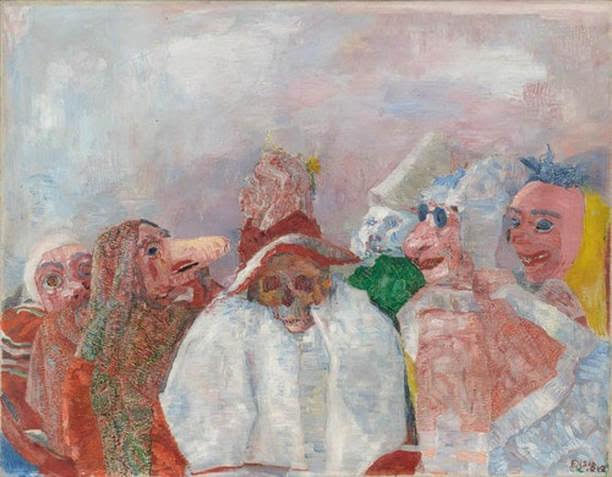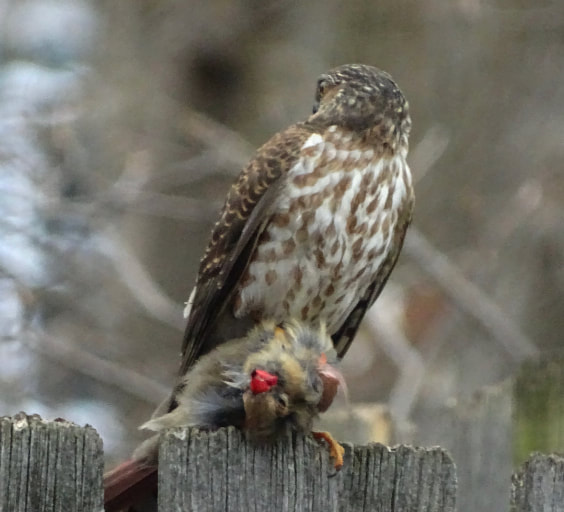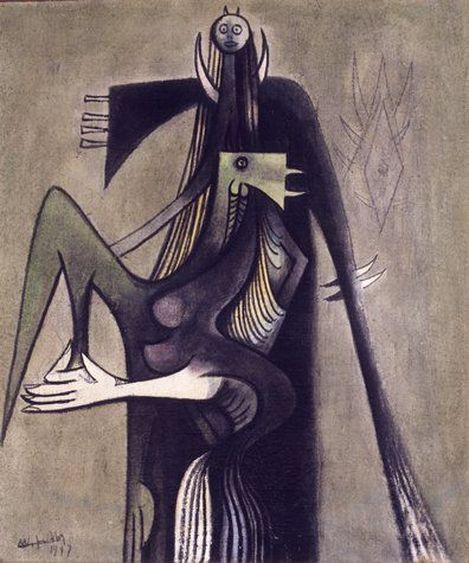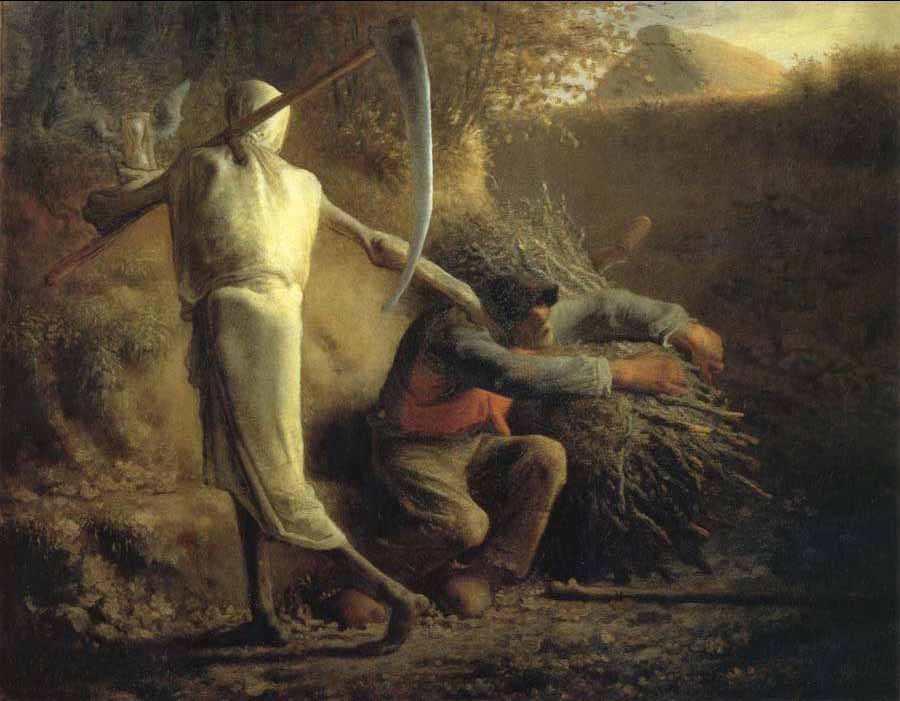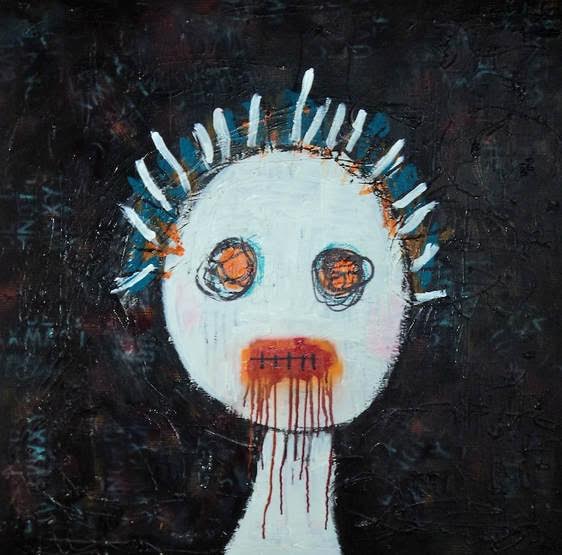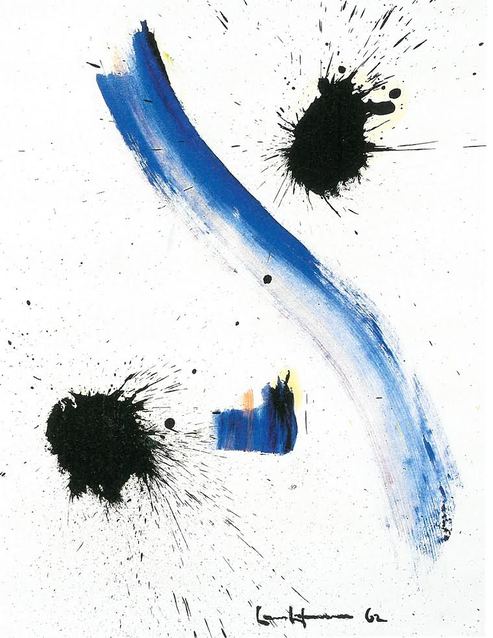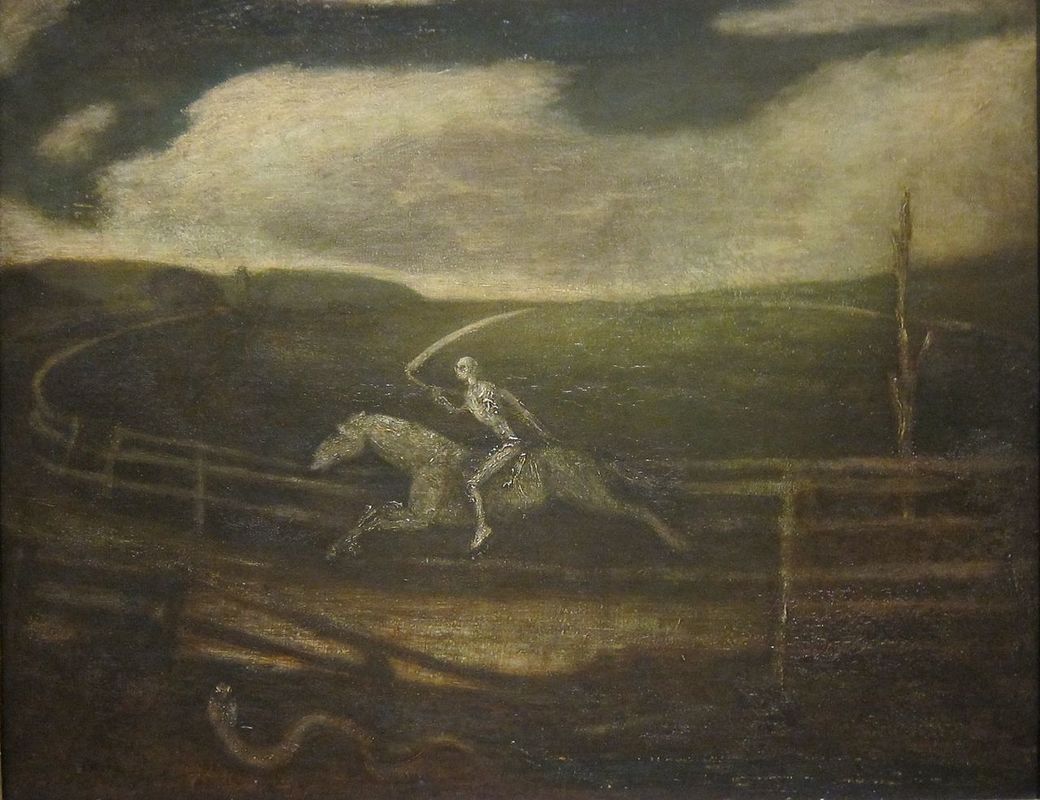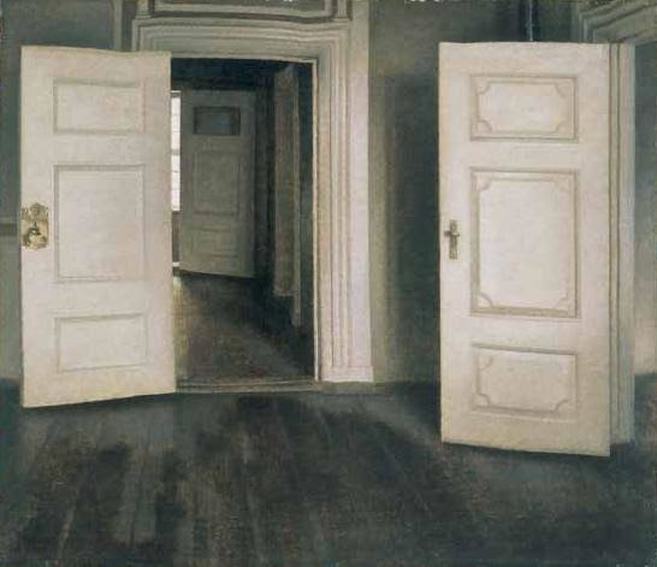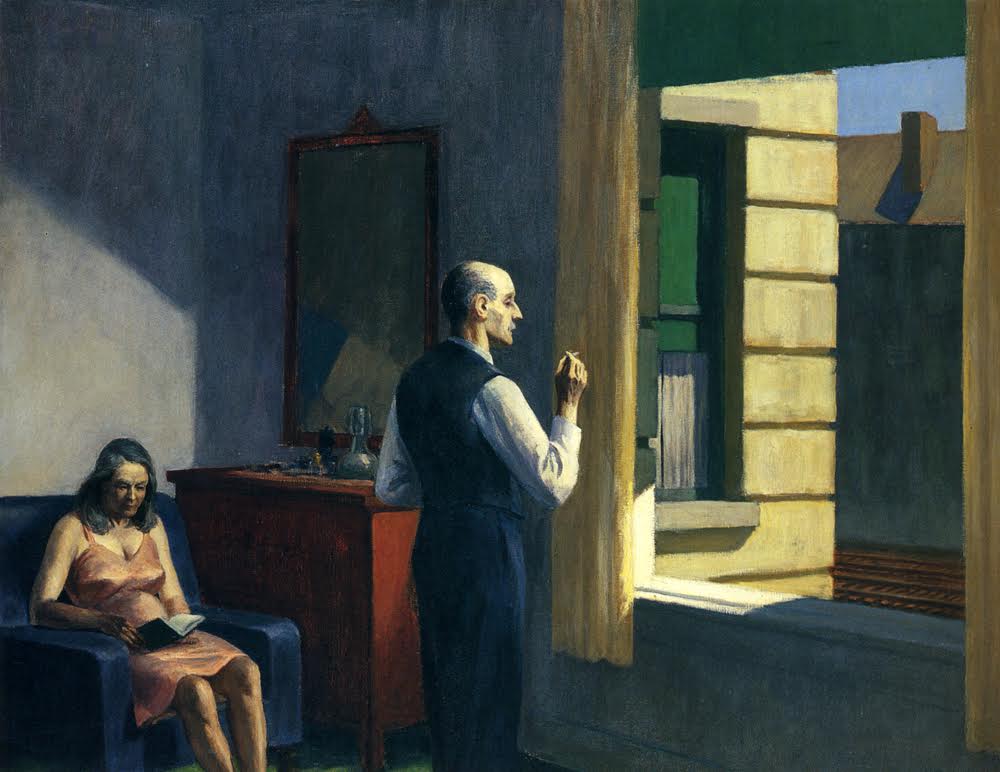|
Everyday Masks
They've held you like the night before a storm. A whistle blows. The shades rattle huddled in the aftermath of thunder that sends a message from the place of death. He knows us. The very number of hairs on our heads. Giveth and taketh away. He has no disguise. We mock him as if he were a fool who counts his money several times a day. There are only bones beneath our masks. We are so much like him. We smile, look over our shoulders, shame him. He must be the loneliest of us all. Billy Howell-Sinnard This poem was written in response to the surprise ekphrastic I See a Darkness challenge. Billy is a hospice case manager, visual artist, and poet. He's had numerous first, second, and third place wins at IBPC (InterBoard Poetry Community). His poem, Hospice Nurse, won second place for poem of the year for 2014-2015. Several of his poems have been published in anthologies and at online poetry sites.
0 Comments
Hawk and Cardinal
One of the several billion deaths that occurred yesterday, this one more seemly than most, the photograph appalled me after I realized the victim was a cardinal. I put it away, but I kept on seeing it until this morning when the memory nagged me into looking again. For years now I’ve fed birds in my backyard, photographed them, savored the pretty ones like this lifeless female. This hawk is just another bird I’ve fed-- this is how I think now that I see how she turns from what she’s killed. Dead means more to me now that I’m well beyond my three score and ten and my mind lets me see my human body face up, eyes closed, arms splayed out, limp and absent from the world, senses discontinued permanently. The lesson here is that there is no lesson. The world is is both cruel and kind. Right now I take comfort from this. David Huddle David Huddle teaches at the Bread Loaf School of English and in the Rainier Writing Workshop. His fiction, poetry, and essays have appeared in The American Scholar, Esquire, The New Yorker, Harper’s, Poetry, Shenandoah, Agni, Plume, The Hollins Critic, and The Georgia Review. His most recent books are Dream Sender, a poetry collection, and My Immaculate Assassin, a novel. With Meighan Sharp, Huddle has co-authored a book of poems, Effusive Greetings to Friends, forthcoming from Groundhog Poetry Press in the fall of 2017, and his new novel, Hazel, is forthcoming from Tupelo Press in 2018. Oracle and the Green Bird
half drunk by the burlap it lives on - a rough patch of crude stitching like a hastily darned and poorly healed wound lies half-way up the left plane of the canvas not belonging to this image but owning the space in ways paint only aspires to both oracle and bird must find a way to exist with this tattered, crosspatched burlap background - and they do. M.J. Arcangelini M.J. Arcangelini was born 1952 in western Pennsylvania. He has resided in northern California since 1979. He began writing poetry at age 11, stories in his teens and memoirs in his late 40′s. His work has been published in a lot of little magazines, small newspapers and 9 anthologies. He is the author of two poetry collections: “With Fingers at the Tips of My Words” 2002 and “Room Enough” 2016. Arcangelini maintains an occasional blog of poetry and prose at https://joearky.wordpress.com/ Death and the Woodcutter
again you are wrong, do you purposely misunderstand me, do you think i am here for the benefit of you or anyone else?: we are here yet were never asked to be born and are never asked if we wish to die except by those who'd be happy to deliver it...this is why it's so easy for me to trick you, to deceive like you were a child, some fool thing destined to be disappointed when called: it's alright, though, come closer and closer when i drive a thousand miles on shot tires fit for a blowout as i'm doing ninety-three...come even closer when i've got my sex in my hands imagining myself exploding inside her telling her she is amazing, telling her she's all i ever wanted, needed, prayed for, and now i can die happy and fulfilled...come right up to my face, feel my breath mix with yours, take one more stride and step inside this mind that's been stewing with so many questions, so much grief, so many demands that you should be tried and hanged for all you've ever taken without mercy, without giving them the time they were due, and now see how i reject you, how i eject you from me with laughter over whatever power they say you have...you don't exist, no one exists like they think they do, there are beginnings i don't remember when i was ripped from the cradle of unbeing, and them saying i will beg for you if i'm made to suffer enough, but i've suffered plenty and have only ever asked to understand why and why and why the way that was chosen, why i chose that way that led to such sharp thorns, the sword in the side, the laughter as i looked up to ask where was the one who was going to save me...but that was me, it's always been me, just as it's each of us who decides the length of our suffering if not ever the method...who knew it would be so easy to call you bastard, ghost, nothing, just as easily as i have without penalty, for yes, there is a darkness, but you are not that darkness, and you are not the sentinel guarding the gateway to that darkness…you are only the unknown we cannot yet understand, maybe will never understand, because we don't get to say when unless we take that resolve for ourselves: this is the hardest thing in existence to take... Garth Ferrante This poem was written as part of the surprise ekphrastic I See a Darkness challenge. Garth Ferrante is a complete unknown who teaches, writes, and makes games out of challenging his own creativity. He writes because he loves to, because he finds meaning and purpose in it, because if he didn’t, life would be lifeless. holes in the fabric of time
your lips run with the blood of your children speak but you can't or will not stitches bind the past to a grave dug into tomorrow never deep enough eyes burn in a hell where visions die over and over a pale resemblance seeping out of follicles chalked over a murder scene victim's silhouette a glow in the dark biologic aberrance whiter and whiter yet your purpose a reverse order of life a longing a spider's web i see it not in your eyes in the night that frames you a hieroglypic untranslatable the meaning flowing from your lips a blasphemy the end of hope Billy Howell-Sinnard This poem was written in response to the surprise ekphrastic I See a Darkness challenge. Billy is a hospice case manager, visual artist, and poet. He's had numerous first, second, and third place wins at IBPC (InterBoard Poetry Community). His poem, Hospice Nurse, won second place for poem of the year for 2014-2015. Several of his poems have been published in anthologies and at online poetry sites. Untitled
To exist without a name You brush lines over each day Like a road unassuming You wake up and drive to work Through the same composition Unaffiliated After you varnish your tasks Your commute smears through home Which stands unanswered Even your lifelong murals Get painted over so You live unmentionable Dane Karnick Dane Karnick grew up by the Colorado “Rockies” and lives near Seattle. His poetry recently appeared in Poppy Road Review, Treehouse Arts, Scarlet Leaf, riverrun and Vacpoetry. Visit him at www.danekarnick.com. The Race Track i greet you like this, cannot help but greet you like this, i am remiss, have not prayed in a long time, i see another satellite being swallowed by another gas giant and say to myself this is just proof on top of proof on top of proof that there is no god: since six million died in the holocaust, there can be no god, since i was allowed to be devoured by fear and loneliness and depression, there can be no god, since you were murdered slowly by your illness into dust and ash there can be no god...there is only the occasional meeting of fellow travelers, as we two were, and then the inevitable parting of the ways...i have so much to say to him wherever he rides as you know there are too many questions to ask, too many explanations to demand, to list here, but at least i can say without a trace of irony that i'm done with my war on christ: he was never the problem, really...i have only returned to the place i left long ago, the same one where i'm watching me tell you we shouldn't be friends anymore, the same one where i'm kissing goodbye years of friendship i'll never get back because soon enough you're going to die and fall victim to your own body, your own genes...there i am watching myself make all these mistakes and there's nothing i can do, no god steps in, no good ever comes of this, though sometimes i am transported to the deaf outer reaches of space where hang and slowly revolve the lonely planets...i go there to get the fuck away from myself, but death calls me back, says i'm not getting any time-outs, so if i want to live, i better start soon...there is no god, no one to be angry with, no one to murder in kind for murdering you, and after all this, what is there?: should i go to work tomorrow, be concerned about my pension, my savings?...should i be worried about my health benefits when i don't even know how much longer i'm going to have my health?...i want to be you sometimes, i want to be dead and gone, to not have these worries on my mind, being stressed from existence for saying he should be killed, that he should be made to die, that he should explain why wake us to such beauty if we're only going to be cut down by the rider just when we feel we've stayed to live...i'm still scared, matt, and you're not around to talk to anymore...i have only the grim silence of those planets which will never be enough for me... Garth Ferrante This poem was written as part of the surprise ekphrastic I See a Darkness challenge. Garth Ferrante is a complete unknown who teaches, writes, and makes games out of challenging his own creativity. He writes because he loves to, because he finds meaning and purpose in it, because if he didn’t, life would be lifeless. Not Here Open rooms, open doors, doors I walk through but do not find you. Doors opening into openness, the old/new space of I, not us. And where is the window God opens after shutting a door, a window to the blue door of a sky so wide no one can latch or unlock it. The door to my heart is also blue, a door opened and stained blue before blue was blue when it was only sky and a door the dead walk through if we give them a knob. So take this knob, my knob, which unlike yours still throbs, shutting, shutting, shutting it's small blue door against this house, this labyrinth of mute and open rooms. Christina Daub This poem was written as part of the surprise ekphrastic I See a Darkness challenge. Christina Daub co-founded The Plum Review, a national award winning poetry journal, started The Plum Writers Retreats and The Plum Reading Series which featured Joseph Brodsky, Carolyn Forché, Mark Strand and many others. Recent poems appear in the anthologies Full Moon on K Street: Poems About Washington, DC, edited by Kim Roberts, 180 More: Extraordinary Poems for Every Day, and The Paradelle, both edited by Billy Collins. She is a recipient of a Young American Poet's award and her work has been translated into Russian, Italian and German. She has taught Poetry and Creative Writing in the English Department at George Washington University and in both the Maryland and Virginia Poets-in-the-Schools programs as well as to adults for many years at The Writer's Center. She has forthcoming work in Beltway Poetry Quarterly and The Southampton Review. Spaces
This house is full of spaces, but here under the kitchen table is best. When he’s scooched right up against the skirting board nobody is any the wiser. He can stay undetected for hours as long as he is careful of the radiator. Not because of the heat - it is never switched on even in the depths of winter - but its hollow metal echo will give him away if he knocks against it. There’s Mam now. He likes the way the puffs of dust swirl around the black tiles and are chased away by the gust from the kitchen door as it opens and closes. Clouds of dog hair and toast crumbs tumble and dance before disappearing into the gap between the washing machine and the fridge. She’s not closed the door properly, you need to grip the handle and keep pulling until the lock snicks otherwise it will swing open again and the dog will get out into the hallway and be up the stairs before you know it. Today it doesn’t matter about the door. From here he can see Barney’s tail hanging over the side of his rubber dog bed and if the radio wasn’t on he’d probably be able to hear the wet snuffles of his deep-sleep breaths. Occasionally, a claw scritches against the tiles as his back-leg twitches in his sleep. The dog won’t be making a break for it this afternoon. Mam’s at the sink. The hem of the tablecloth obscures everything above her calves. The tap hisses as she fills the bowl and there’s the chatter of china as she clears the breakfast crockery from the draining board. She’s barefoot. She stretches, revealing one sole, dark with dirt from the kitchen floor. These bloody tiles, she says often. I don’t know what the council were thinking. The black gets everywhere. The oven light blinks on. It’s still early but she must have turned the dial to preheat it. She’ll start chopping veg soon. The window in the oven door is smeared with grease. Once, for dinner, she had served up thick slices of bread coated in a dull sludge that smelt just like the oven as it heats up. Fussy little sod, she’d said when his lip quivered. Dad had laughed. Baap re, he’d said. No wonder your empire crumbled if that’s the best you could manage. Not wanting to upset Mam, he’d taken a large bite but his throat refused it. Gagging, he’d managed only to hold the claggy mass in his mouth until they’d both been looking the other way and then he’d let it fall back out onto his plate. Chewed, it looked no different. Sorry Mam, he’d said, his tongue coated with grease. It had clung to the back of his teeth. Well, there’s nothing else, she’d said and had scraped his plate into the dog bowl. Sundays are best. He sneaks in early to listen to her preparing dinner. Sometimes she sings along with the radio. He can see her feet tapping. But not today. On Sunday, there is chicken and proper roast potatoes. And boiled. Once there’d been mash too and Dad had said, Baap re woman, who has the stomach for three kinds of potato? But he’d eaten it all the same. There had been flecks of gravy on his shirt collar until bedtime. Most days after school, some of the bigger kids from the other estate will follow him part the way home shouting, Oi Mowgli, what’s for dinner? Once he’d shouted back, Beans on toast, and they’d thrown stones at him. But on Sundays, there are normal vegetables. Carrots and peas and thick wedges of parsnip that nobody touches. He knows that in every house on his street everybody will be sitting down to a similar meal. Dad comes in now. One large brown toe pokes from a hole in his sock. Any tea? he says. Mam does not answer and Dad says, Baka? He watches as Dad crosses the kitchen. He stops with one foot either side of Mam’s. Whali, what’s all this? he says. That poor boy, Mam says in a thin voice. Just sixteen. He knows what boy she is talking about. It’s been the talk of school. That was far from here, Dad says as if that makes a difference. They said his own mother couldn’t identify him, she says. He’ll need dozens of operations and even then. His face. That poor boy. He’d seen the pictures in the paper. The boy used to look just like him. At the pond round the back of the Sports & Social Club, he’d sometimes lose hours staring at himself in the filthy water. His translucent image in the surface had his Dad’s features but Mam’s tone. It made him dizzy. Once, a couple of the bigger kids from the other estate had crept up behind him whilst he was dropping large stones into his reflection. They caught him watching his face his own face as it rippled and reformed. Briefly there were four faces, each the same pale shade, shimmering on the surface. Then one of them said, Can you swim, Jungle Boy? And shoved him hard in the back. The pond was chest deep and the mud had sucked one trainer from his foot as he splashed his way back to the bank. When he got home, Mam had chased him straight back out the door, his wet sock slapping at the street. You get back in there and search for it, she’d said. They’re near new those shoes. Simeon Ralph Simeon Ralph is a writer, musician and lecturer. He is currently studying for an MA in Creative Writing at MMU. Originally from Essex, he now lives in Norwich. No Where To Go
A book can be a vehicle a club car characters to befriend, to avoid cold steel of the tracks sings in the wind weeds travel where no one else goes take root in forbidden cinders the relentless sun leaves shadows behind to the coming night a mirror to hide in the corners time to think of places to go to realize there are none beyond the burning cigarette and open book Billy Howell-Sinnard Billy is a hospice case manager, visual artist, and poet. He's had numerous first, second, and third place wins at IBPC (InterBoard Poetry Community). His poem, Hospice Nurse, won second place for poem of the year for 2014-2015. Several of his poems have been published in anthologies and at online poetry sites. |
The Ekphrastic Review
COOKIES/PRIVACY
This site uses cookies to deliver your best navigation experience this time and next. Continuing here means you consent to cookies. Thank you. Join us on Facebook:
July 2024
|
